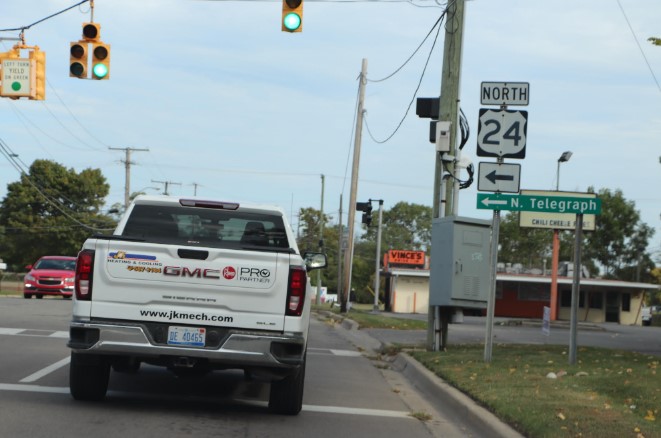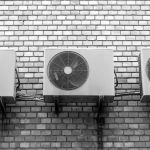If you are experiencing issues with your hot water heater, central A/C system, furnace, or have noticed a sudden increase in utility bills, contact J&K Heating & Cooling. They will promptly address your problems and schedule a fast inspection. They are also equipped to handle after-hours and weekend emergencies. Attempting to fix heating or cooling issues without proper training and licensing can cause further damage, which is why it is best to call the experts at J&K Heating & Cooling, the top Heating and cooling Monroe Michigan contractor.

Their HVAC specialists are knowledgeable and friendly, and have established relationships with local inspectors to ensure efficient and approved service. They also provide full service, including removal of old or faulty equipment when replacing heaters or hot water tanks. J&K Heating & Cooling is the go-to one-stop-shop for all heating and cooling repair and installation needs.
Table of Contents
What Type Of Heating And Cooling System Is Best
When it comes to keeping your home comfortable year-round, the heating and cooling system you choose is important. In this blog post, we will explore the different types of heating and cooling systems available and determine which type of system is best for your home. We will discuss air conditioning systems, heating system options, and the pros and cons of each type. By the end of this post, you will have a better understanding of what type of heating and cooling system is best for you.
Air Conditioning Systems Explained
Summer is here and that means it’s time to get your air conditioning system ready for the hot weather. However, before you buy an air conditioning system, it’s important to understand the different types of systems and the requirements that they have. Below, we will outline each type of system and discuss some of their advantages and disadvantages. Afterwards, we’ll provide a brief overview of fuel sources for heating and cooling as well as the lifespan of each type of system. Finally, we’ll discuss Maintenance schedules and ratings as well as cost-related factors when purchasing an air conditioning system.
Air Conditioning
There are three main types of air conditioning systems: mechanical cooling, evaporative cooling, and hybrid cooling. Each type has its own advantages and disadvantages, so it’s important to choose the right one for your needs.
Mechanical Cooling System: A mechanical cooling system uses fans to move air around a room in order to cool it down. This is the most common type of air conditioning system in use today, and it’s usually the cheapest option as well. However, mechanical cooling systems can be noisy so they might not be ideal if you’re looking for a quiet environment. Additionally, mechanical cooling systems tend to require more maintenance than other types of systems – they need to be cleaned regularly with a vacuum cleaner or high-pressure water hose in order to function properly.
Evaporative Cooling System: Evaporative cooling uses water droplets (evaporation) to cool down rooms quickly instead of using fans or other methods like thermal transfer refrigeration (the other two main methods). This is a more environmentally friendly option because it doesn’t use any energy or fluids that could potentially harm our planet – such as water – but it also tends to be more expensive than other types of AC systems due Mostly due to the high price tags attachedto high-quality evaporative cooler units which can last up 50 years or more without any major repairs! Some potential drawbacks include noise levels due evaporation being an active process (just like with Mechanical Cooling), limited space availability since evaporativecoolers need room near an open window or outside wall for proper operation; furthermore some people may find them difficultto install since they require drilling into concrete or brick walls. In comparisonto Mechanical Cooling Systems which need periodicmaintenance, Evaporative Cooling Systems typicallyrequire much lessmaintenance over their lifespan. Some vaporizers come pre-charged with distilled waterwhich helps keep things running smoothly without any.
Comparisons Between Heating, Cooling And Hybrid Systems
When it comes to keeping your home or office warm or cool, a heating and cooling system is a must. But which type of system is the best for you? And how can you determine which one is right for your needs? Below, we will outline the different types of heating and cooling systems and their respective benefits. We will also compare the costs and performance of different systems in different climates, so that you can make an informed decision about which system is right for you.
One of the most important factors to consider when choosing a new heating and cooling system is your climate. Do you live in a cold climate where it’s necessary to keep buildings chilly year-round? Or do you live in a hot climate where air conditioning is necessary? Each type of system has its own set of advantages and disadvantages, so it’s important to know what those are before making your purchase.
Heating and cooling systems come in many different types, from gas-fired units to solar thermal units. Each type offers its own set of benefits and drawbacks, so it’s important to compare each one before making a purchase. Some popular types of systems include: central AC (cooling), forced air (heating), radiant floor heaters, window AC units, central heat pumps, mini split ACs/HVACs (heating), oil fired boilers (heating), ground source heat pumps (cooling).
The costs associated with each type of heating and cooling system vary depending on the size of the unit as well as where it’s located. In general however, hybrid systems offer the best value because they combine features from both electric/gas based units as well as ductless mini splits/split ACs/HVACs – all while using less energy overall than either type alone.
There are several potential problems that can occur with any kind of heating or cooling system – from broken parts that need to be replaced regularly to more serious issues like fires caused by faulty equipment. In order for your system to run at its best all year round, it’s important to keep regular maintenance appointments including checking filters, replacing gaskets, checking insulation levels, etc. If something does go wrong though – don’t be afraid to call an expert! There are numerous repair shops throughout Cincinnati that are familiar with all sorts of heating & cooling systems – locally or beyond our city limits.
Finally – whether you’re just starting out on your home improvement journey or have been living with an existing heating & cooling system for years – don.
Heating System Options Overview
Do you ever find yourself wondering which type of heating and cooling system is best for your home? Well, wonder no longer! In this section, we will outline the different types of heating and cooling systems available, as well as the considerations that you’ll need to make when choosing one. We will also discuss the benefits and features of split systems and mini split heat pumps, as well as provide tips on installation requirements and maintenance. Last but not least, we’ll discuss warranties for different HVAC system components. So read on to learn everything you need to know about selecting the right heating system for your home!
When it comes to selecting a heating and cooling system for your home, there are a variety of options available. Here are three of the most common types: central systems, split systems, and mini split heat pumps. Each has its own set of advantages and disadvantages that must be considered before making a purchase.
Central HVAC Systems
A central HVAC system is usually the most expensive option available, but it offers many benefits over other types of systems. Central HVAC systems are usually large and require a lot of floor space in order to operate correctly. They’re also quite powerful, meaning they can handle large rooms easily. However, central HVAC systems have several disadvantages too: they’re difficult to move if you want to update or replace parts; they can be noisy; and they require regular maintenance in order to keep them running efficiently.
Split Systems
A split system is a compromise between a central HVAC system and individual air conditioning units (IAU). The advantage of using a split system is that it’s affordable compared to both single-unit air conditioners or central HVAC systems – typically costing around $3 per square foot annually in comparison with $15-$50 per square foot for IAU installation costs alone*. Additionally, because each room in your house can have its own independent AC unit,split systems are ideal if you have large rooms or lots of windows/doors that open onto outside spaces (like patios or decks). The main disadvantage of split systems is that they’re less efficient than central HAVC units when it comes to cooling large rooms; additionally, if one part of your house experiences heavy use during summer months (for example), all parts may experience increased AC noise levels due to shared ductwork between units. *Based on installed prices for residential homes in 2018.
Which System Is Best For Your Home?
There are a lot of different types of heating and cooling systems available on the market today. Which one is right for your home depends on a number of factors, including your needs and budget. Below, we will outline some of the factors that you should consider when selecting a heating and cooling system for your home.
First, you should consider your needs. What type of climate do you live in? Do you want central air or heat? Are you comfortable with using natural gas or oil as your heating source? Do you need to install special windows or doors to accommodate a specific type of heating or cooling system? The more information that you can gather about your needs, the better equipped you will be to make an informed decision about which system is best for you.
Next, consider the types of heating and cooling systems available on the market today. There are three main types: mechanical, electrical, and hybrid. Mechanical systems use fans and pumps to move air around; electrical systems use electricity to move air around; while hybrid systems use both mechanical and electrical systems together in order to provide optimum comfort for users. Each system has its own advantages and disadvantages – it’s important to weigh all of these factors when making your selection.
Finally, cost is always an important consideration when shopping for a new heating or cooling system. Systems range in price from around $1,000 up into the thousands of dollars depending on their features and specifications. Be sure to factor in all costs associated with purchasing, installing, using (and possibly repairing) the system throughout its lifetime. Also keep in mind any environmental benefits associated with specific types of systems (such as reducing energy consumption).
Conclusion
No matter what type of heating and cooling system you choose, it is important to consider climate, cost, performance, efficiency, and maintenance when making your selection. Central HVAC systems are the most powerful, but they require a lot of space and regular maintenance. Split systems can be more affordable while still offering efficient performance. Finally, mini split heat pumps offer the best balance between cost and efficiency. Ultimately, each type of heating and cooling system has its own advantages, so it is important to do your research before making a purchase in order to find the best one for your needs.
Posts from the same category:
- Why Get a New Air Conditioning Installation?
- Factors to Check Before You Look for a Front Doors Manufacturer
- Ball Screw Pros and Cons
- Contractors for Shingle Roofing Dearborn Michigan
- California-Specific Water Saving Washers
- Quick Guide for Choosing Your Planter Pots
- Buying a New Bed after You’re Married





